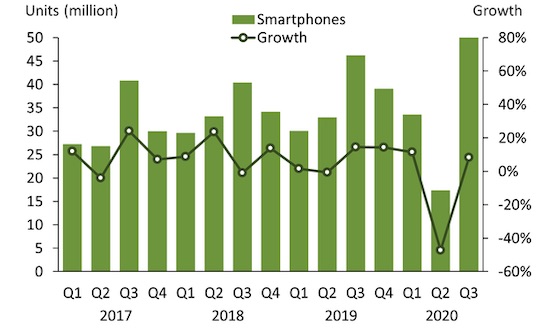News: Facebook adds hosting, shopping features, and pricing tiers to WhatsApp Business
Facebook has been making a big play to be a go-to partner for small and medium businesses that use the internet to interface with the wider world, and its messaging platform WhatsApp, with some 50 million businesses and 175 million people messaging them (and more than 2 billion users overall), has been a central part
Facebook has been making a big play to be a go-to partner for small and medium businesses that use the internet to interface with the wider world, and its messaging platform WhatsApp, with some 50 million businesses and 175 million people messaging them (and more than 2 billion users overall), has been a central part of that pitch.
Now, the company is making three big additions to WhatsApp to fill out that proposition.
It’s launching a way to shop for and pay for goods and services in WhatsApp chats; it’s going head to head with the hosting providers of the world with a new product called Facebook Hosting Services to host businesses’ online assets and activity; and — in line with its expanding product range — Facebook said it will finally start to charge companies using WhatsApp for Business.
Facebook announced the news in a short blog post light on details. We have reached out to the company for more information on pricing, availability of the services, and whether Facebook will provide hosting itself or work with third parties, and we will update this post as we learn more.
Here is what we know for now:
In-chat Shopping. Companies are already using WhatsApp to present product information and initiate discussions for transactions. One of the more recent developments in that area was the addition of QR codes and the ability to share catalog links in chats, added in July. At the same time, Facebook has been expanding the ways that businesses can display what they are selling on Facebook and Instagram, most recently with the launch in August of Facebook Shop, following a similar product roll out on Instagram before that.
Today’s move sounds like a new way for businesses in turn to use WhatsApp both to link through to those Facebook-native catalogs, as well as other products, and then purchase items, while still staying in the chat.
At the same time, Facebook will be making it possible for merchants to add “buy” buttons in other places that will take shoppers to WhatsApp chats to complete the purchase. “We also want to make it easier for businesses to integrate these features into their existing commerce and customer solutions,” it notes. “This will help many small businesses who have been most impacted in this time.”
Although Facebook is not calling this WhatsApp Pay, it seems that this is the next step ahead for the company’s ambitions to bring payments into the chat flow of its messaging app. That has been a long and winding road for the company, which finally launched WhatsApp Payments, using Facebook Pay, in Brazil, in June of this year only to have it shut down by regulators for failing to meet their requirements. (The plan has been to expand it to India, Indonesia and Mexico next.)
Facebook Hosting Services: No! This is not about Facebook taking on AWS. Or… not yet at least? The idea here appears that it is specifically aimed at selling hosting services to the kind of SMBs who already use Facebook and WhatsApp messaging, who either already use hosting services for their online assets, whether that be their online stores or other things, or are finding themselves now needing to for the first time, now that business is all about being “online.”
This is a very interesting move, since the SMB hosting market is pretty fragmented with a number of companies, including the likes of GoDaddy, Dream Host, HostGator, BlueHost and many others also offering these services. That fragmentation spells opportunity for a huge company like Facebook with a global profile, a burgeoning amount of connections through to other online services for these SMBs, and a pretty extensive network of data centers around the world that it’s built for itself and can now use to provide services to others — which is, indeed, a pretty strong parallel with how Amazon and AWS have done business.
Facebook already has an “app store” of sorts of partners it works with to provide marketing and related services to businesses using its platform. It looks like it plans to expand this, and will sell the hosting alongside all of that, with the kicker that hosting natively on Facebook will speed up how everything works.
“Providing this option will make it easier for small and medium size businesses to get started, sell products, keep their inventory up to date, and quickly respond to messages they receive – wherever their employees are,” it notes.
Charging tiers: As you would expect, to encourage more adoption, Facebook has not been charging for WhatsApp Business up to now, but with more services coming into the mix, and businesses tying their fates more securely to how well they are performing on Facebook’s platforms, it’s not surprise to see Facebook converting that into a play to pay.
Frustratingly, there seems so far to be no detail on which services will be charged, nor how much, nor when, so this is more of a warning than a new requirement.
“We will charge business customers for some of the services we offer, which will help WhatsApp continue building a business of our own while we provide and expand free end-to-end encrypted text, video and voice calling for more than two billion people,” it notes.
For those who might find that annoying, on the plus side, for those who are concerned about an ever-encroaching data monster, it will, at the least, help WhatsApp and Facebook continue to stick to its age-old commitment to stay away from advertising as a business model.
Doubling-down on SMBs
The new services come at a time when Facebook is doubling down on providing services for businesses, spurred in no small part by the coronavirus pandemic, which has driven physical retailers and others to close their actual doors, shifting their focus to using the internet and mobile services to connect with and sell to customers.
Citing that very trend, last month the company’s COO Sheryl Sandberg announced the Facebook Business Suite, bringing together all of the tools it has been building for companies to better leverage Facebook, Instagram and WhatsApp profiles both to advertise themselves as well as communicate with and sell to customers. And the fact that Sandberg was leading the announcement says something about how Facebook is prioritizing this: it’s striking while the iron is hot with companies using its platform, but it sees/hopes that business services can a key way to diversify its business model while also helping buffer it — since many businesses building Pages may also advertise.
Facebook has also been building more functionality across Facebook and Instagram specifically aimed at helping power users and businesses leverage the two in a more efficient way. Adding in more tools to WhatsApp is the natural progression of all of this.
To be sure, as we pointed out earlier this year, even while there is a lot of very informal use of WhatsApp by businesses all around the world, WhatsApp Business remains a fairly small product, most popular in India and Brazil. Facebook launching more tools for how to use it will potentially drive more business not just in those markets but help the company convert more businesses to using it in other places, too.
Smaller businesses have been on Facebook’s radar for a while now. Even before the pandemic hit, in many cases retailers or restaurants do not have websites of their own, opting for a Facebook Page or Instagram Profile as their URL and primary online interface with the world; and even when they do have standalone sites, they are more likely to update people and spread the word about what they are doing on social media than via their own URLs.






